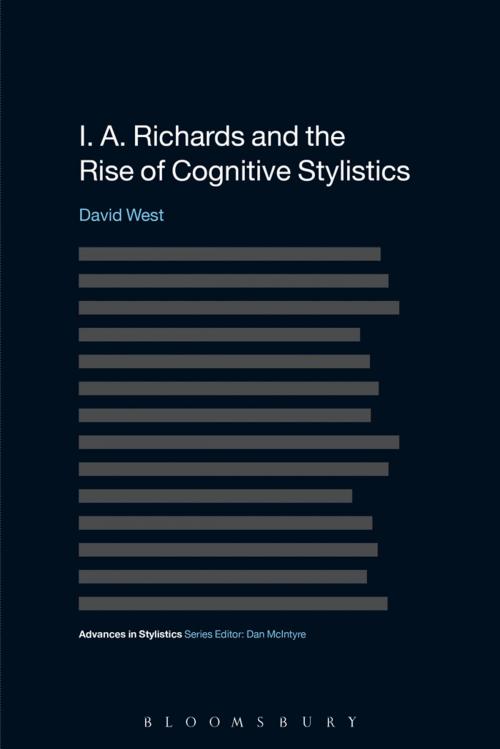I. A. Richards and the Rise of Cognitive Stylistics
Fiction & Literature, Literary Theory & Criticism, Theory, Nonfiction, Reference & Language, Language Arts, Linguistics| Author: | Dr David West | ISBN: | 9781441150929 |
| Publisher: | Bloomsbury Publishing | Publication: | September 26, 2013 |
| Imprint: | Bloomsbury Academic | Language: | English |
| Author: | Dr David West |
| ISBN: | 9781441150929 |
| Publisher: | Bloomsbury Publishing |
| Publication: | September 26, 2013 |
| Imprint: | Bloomsbury Academic |
| Language: | English |
I. A. Richards is an influential figure in literary criticism but has rarely been thought of as someone who laid the foundations for cognitive stylistics. This book proposes that Richards was a "protocognitivist".
West argues that Richards anticipated many of the discipline's core aims, methods and assumptions. The book argues that the roots of cognitive psychology lie in early 20th-century psychology, when there was a focus on cognitive processes such as memory and learning, attention, categorisation, perception and consciousness. It was this cognitive psychology that Richards drew upon to build a theory of literature and interpretation - which in itself prefigured cognitive stylistics.
West also suggests that Richards is one of the more influential British intellectuals of the 20th century, and that his work is still relevant today. West argues that cognitive stylistics is not, as Peter Stockwell has written, a "new science of literature and reading", but rather a discipline with a history that it continues to deny itself.
This book will appeal to researchers and advanced students in stylistics and literary studies.
I. A. Richards is an influential figure in literary criticism but has rarely been thought of as someone who laid the foundations for cognitive stylistics. This book proposes that Richards was a "protocognitivist".
West argues that Richards anticipated many of the discipline's core aims, methods and assumptions. The book argues that the roots of cognitive psychology lie in early 20th-century psychology, when there was a focus on cognitive processes such as memory and learning, attention, categorisation, perception and consciousness. It was this cognitive psychology that Richards drew upon to build a theory of literature and interpretation - which in itself prefigured cognitive stylistics.
West also suggests that Richards is one of the more influential British intellectuals of the 20th century, and that his work is still relevant today. West argues that cognitive stylistics is not, as Peter Stockwell has written, a "new science of literature and reading", but rather a discipline with a history that it continues to deny itself.
This book will appeal to researchers and advanced students in stylistics and literary studies.















